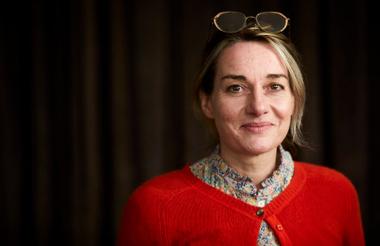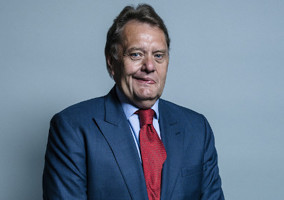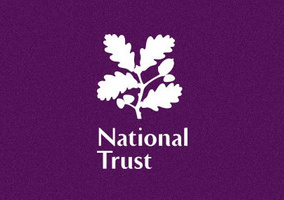Celia Richardson took up the role of director of communications and marketing at the National Trust in December 2018.
A year later, the charity found itself immersed in controversy due to its report on its properties' links to colonialism – which critics labelled “woke” and an attempt to push a political agenda. The scrutiny became so extreme that the director-general of the Trust, Hilary McGrady, received death threats.
When asked whether this is the biggest challenge she has faced since joining the charity, Richardson says: “Undoubtedly, yes.”
Some of the social media backlash occurred in 2020, when the National Trust was attempting to close its properties and put staff on furlough, as a result of the coronavirus pandemic.
“It was quite an intense period, coming in the days when we were in the middle of trying to close the organisation for the first time in its history. Our entire leadership team was under significant pressure,” says Richardson.
The controversy “felt louder than ever before,” and as director of communications and marketing, Richardson was working at the forefront of the issue. The National Trust team received letters and messages from people claiming they were going to cancel their memberships, though did not see this reflected in membership figures.
Richardson says: “What we tried to do was stay abreast of what was happening. We tried to engage as far as possible with our critics.”
‘Remain engaged with critics’
The charity ensured a lot of its communications were reactive, and Richardson advised other charities going through a similar situation to prioritise this.
She says: “When you get into a bit of a trope that you've done something wrong, not everyone's really paying a great deal of attention. They just get this vague sense that something's gone wrong. And that can really unnerve long-term supporters and it can undermine people’s confidence in charities.”
Richardson recounted a National Trust member coming to her with concerns about the National Trust being woke. She argues that it was important that the charity remained engaged with its supporters and stayed abreast of what was being said. Richardson said she thinks you absolutely have to be respectful and you have to be able to be open to people's opinions, until a certain point.
“Obviously, we did experience some abuse. There has been racist abuse and we have seen some homophobic campaigning around too. I am not suggesting we listen to that intolerance or we engage with that. But some people are good faith actors, and they're genuinely concerned about what you're doing, whether you agree with them or not, it’s really important to engage with them.”
She adds: “Don’t switch off from people, don't turn away from people. Institutions like the National Trust are here for the whole of society, and they are here to bring people together.”
‘We should be dealing with all aspects of cultural history’
Richardson said the charity dealt with the controversy well because it has strong governance structures, and that the organisation stands by the work it has done that brought about the criticism.
She says: “Lots of charities and public bodies have felt under pressure recently. But we have robust and well-designed governance structures. We've got a really strong founding purpose – ‘for everyone forever’. And we should be looking at all aspects of cultural history regardless of your identity or your ethnic origin. The point of having very large independent institutions is that they can help to fortify the sector and civil society during difficult times [...] We have had lots of calls from other charities that have felt under attack on cultural issues too.”
What would you say to other charities that also feel under attack?
If your charity becomes immersed in controversy, Richardson suggests creating a small crisis team to deal with it, whether that be made up of two or twenty people.
She advises making sure you are keeping your trustees briefed, as well as making sure that you are aware of what is being said.
“The second thing I would do is talk to your sector partners. We have spent quite a bit of time talking to other charities that have been attacked. We have allies in other charities and we try to stand up for one another.”
Staff should also ensure they are sticking very closely to partiality guidelines and are not sharing things that can be construed as political, she says.
“The public has to have institutions and safe spaces away from politics. I feel very strongly about that - there have to be parts of society that are free, independent and are seen to be so.”
A focus on diversity and inclusion
The National Trust wants to better reflect the population it serves, and do so by reaching more underrepresented groups, Richardson says.
For example, the National Trust is currently working with a group called Muslim Hikers, as minority ethnic groups are underrepresented when it comes to visiting the countryside.
The charity is also trying to market its free properties more to reach people from low-income households.
“As an organisation for years and years we've marketed our paid-for places and you’d be forgiven for thinking we were a sort of country club,” she says.
“Some of our free places – you don't know that they're free. You don't know that you can go and visit them without being told, if you’re not a ‘National Trust person’. So we’re trying to get better at marketing our free places and marketing to underrepresented audiences.”
The heritage charity is also trialling virtual tours of some of its properties too because, as Richardson says, “everyone should be able to access nature, even psychologically”.
Related articles













